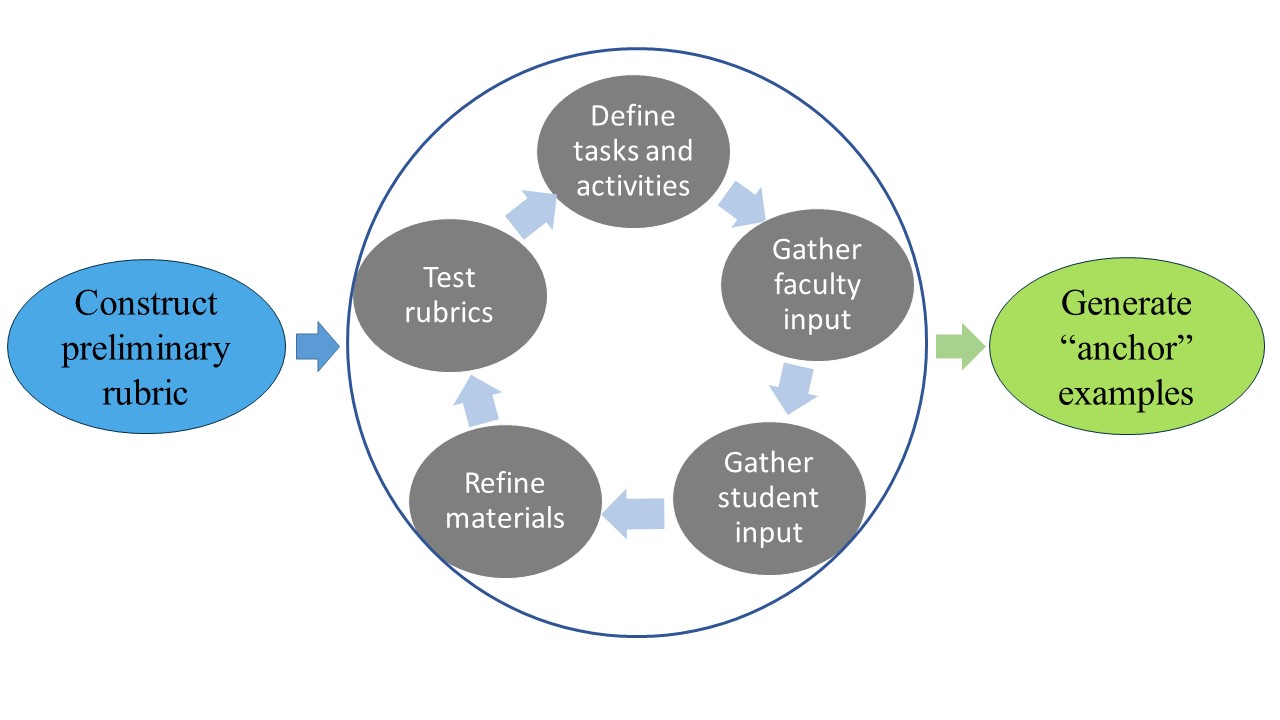
Development of Rubrics to Assess Evidence of Students' Process Skills
National STEM education standards emphasize process skills that students must develop before graduating from college. Process skills such as problem solving, critical thinking, and written and oral communication are highly desirable in both educational and professional settings. The goal of the ELIPSS project is to create resources that are readily accessible and can be easily adopted by instructors to assess students’ process skills. In collaboration with Juliette Lantz at Drew University and Suzanne Ruder at Virginia Commonwealth University, we are creating and testing a set of rubrics that will not only evaluate students’ process skills but also enable instructors to give constructive feedback to help students improve these skills. Each rubric is designed to assess evidence of a single process skill in either a student’s written work or in a group’s interactions. Our research group focuses on developing the rubrics to evaluate students’ written work while our collaborators work on the rubrics for group interactions.
The theoretical framework of self-regulated learning and the role of feedback inform the research design, data collection, and data analysis. The goal of self-regulated learning is for students to become “masters” of their own learning. By creating rubrics to provide feedback to students and faculty that are focused on performance rather than content knowledge, we hope to give students the information they need to improve their own process skills. Additionally, the faculty development workshops that we are creating as part of this project are intended to create better alignment between instructor's desired learning outcomes (i.e. improving process skills), the tasks that students perform, and the ways in which students are assessed.
Click on the link here to view the website for the ELIPSS Project.
This project is supported by the National Science Foundation IUSE program grant #1524965.
Process Skill Rubrics
Written work: Problem Solving, Critical Thinking, Information Processing, Written Communication, and Metacognition/Self-Assessment
Group Interactions: Problem Solving, Critical Thinking, Information Processing, Oral Communication, Teamwork, and Management
Rubric Design Cycle
